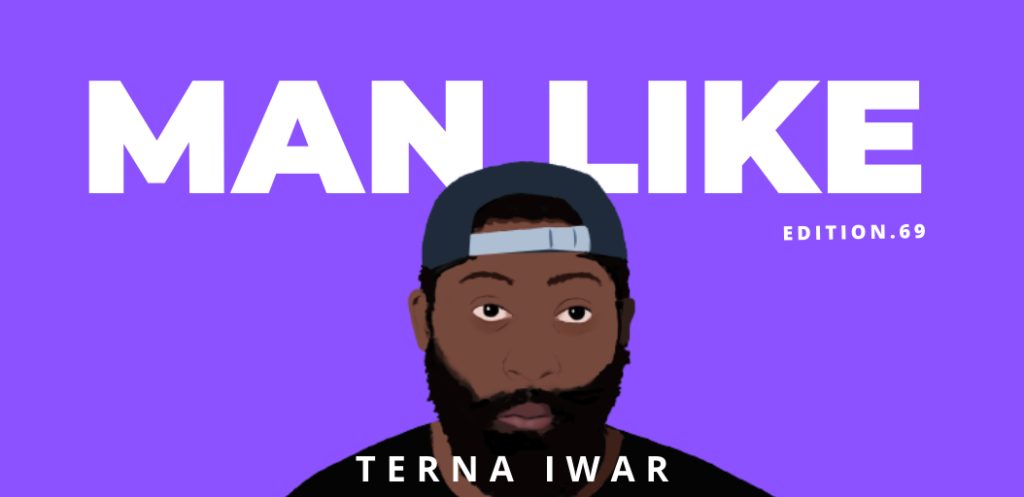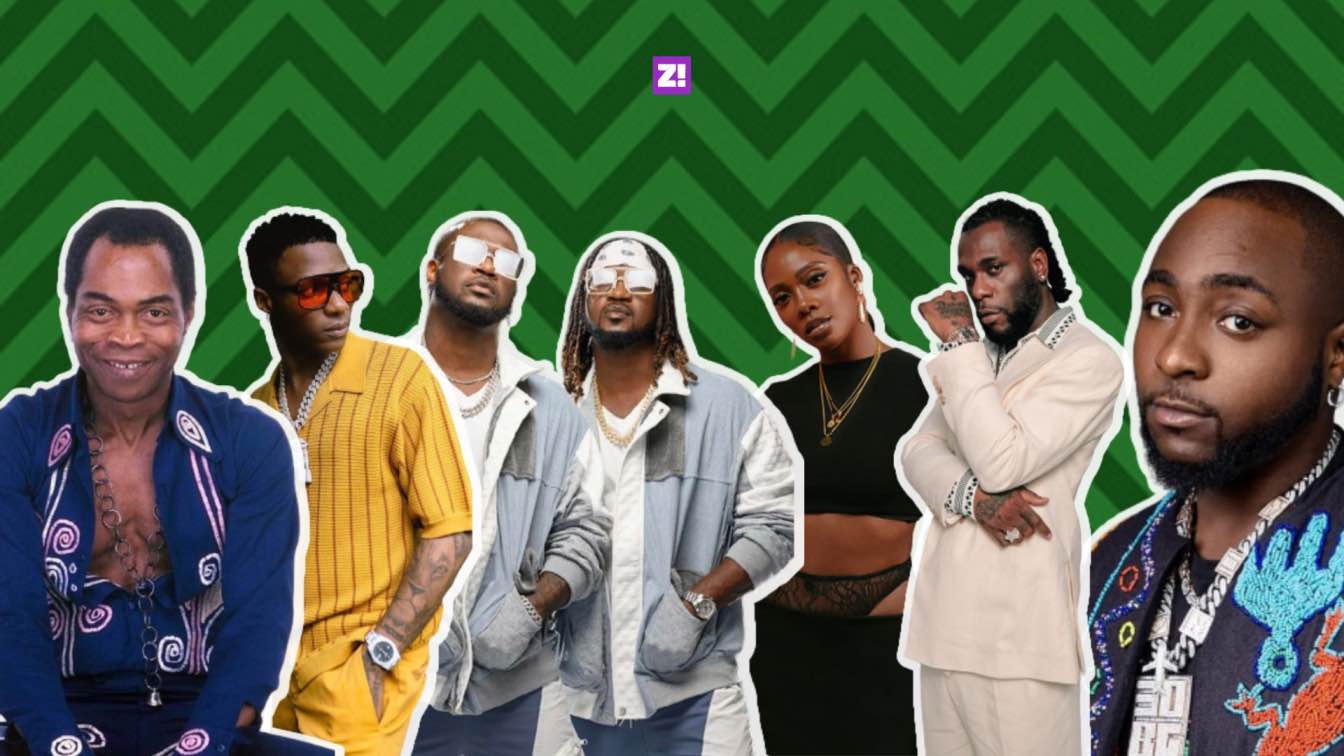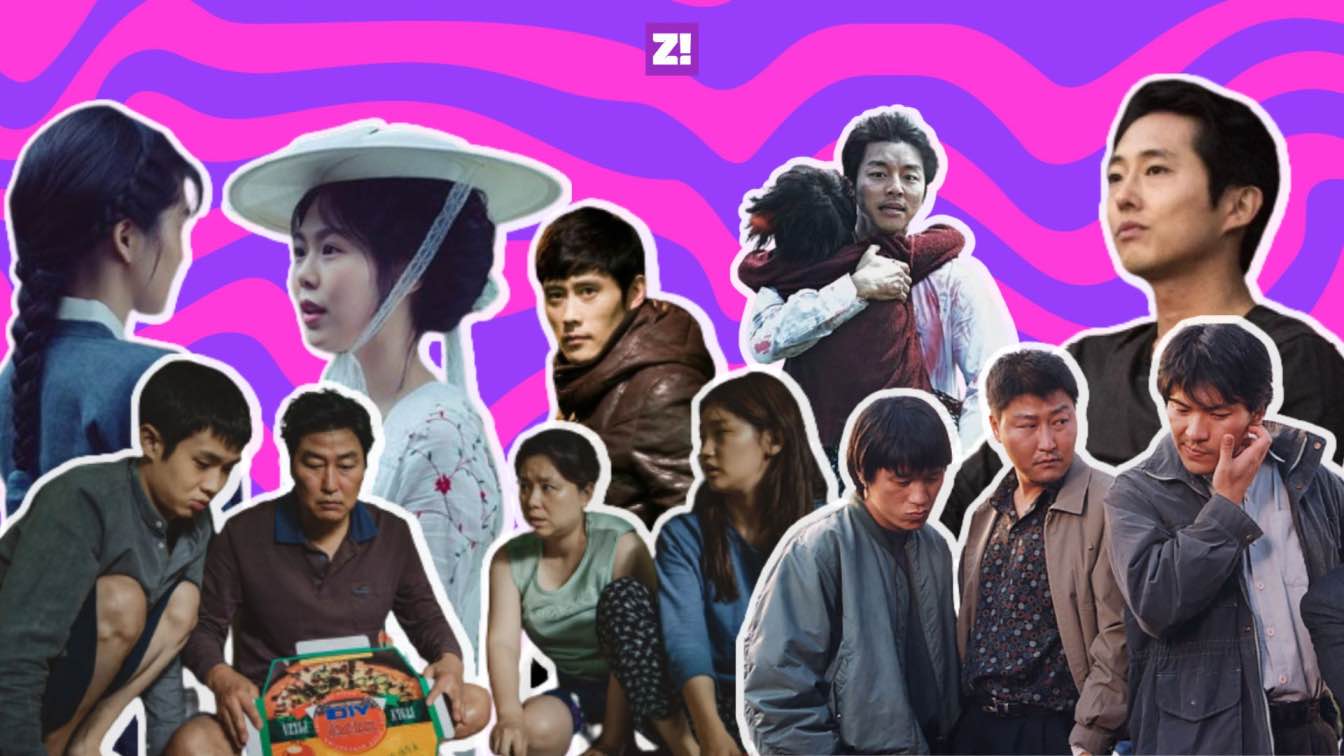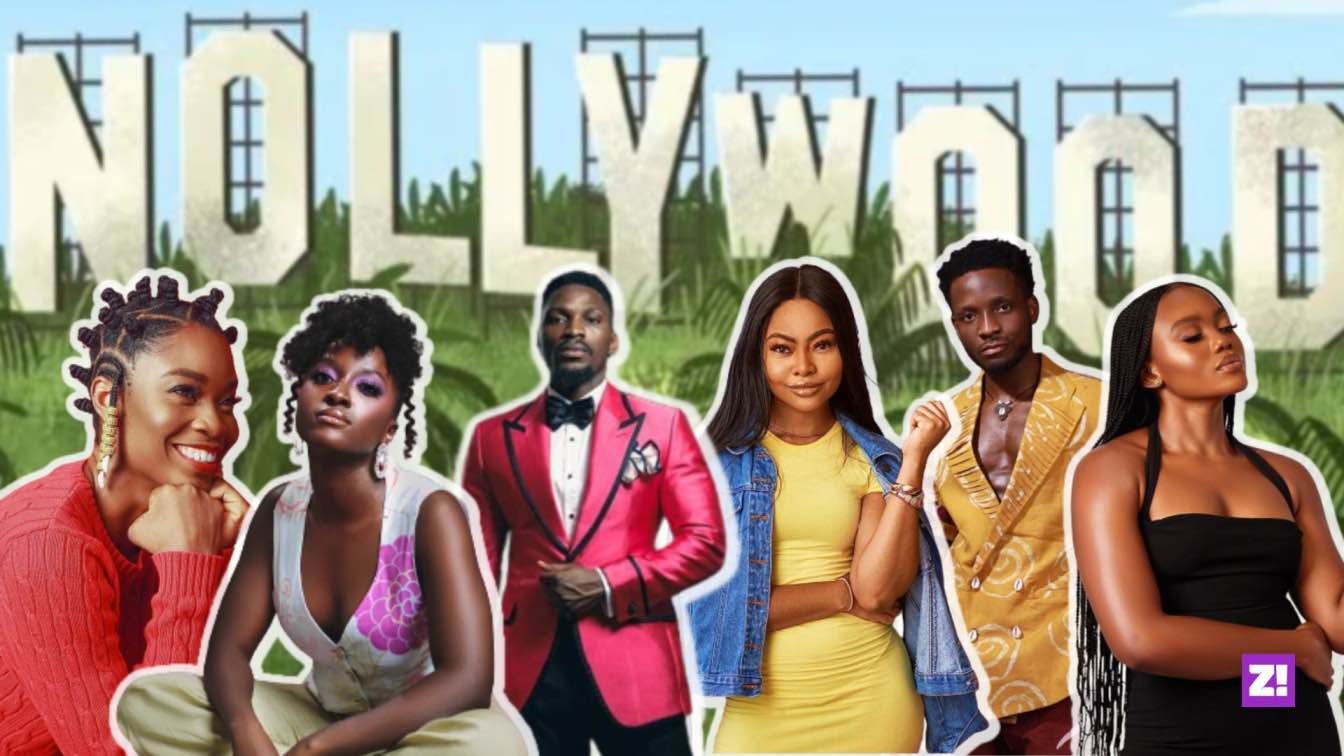What does it mean to be a man? Surely, it’s not one thing. It’s a series of little moments that add up. Man Like is a weekly Zikoko series documenting these moments to see how it adds up. It’s a series for men by men, talking about men’s issues. We try to understand what it means to “be a man” from the perspective of the subject of the week.

Terna Iwar has always been an elusive figure in Abuja’s burgeoning creative community. As a photographer and creative director, his work has been featured on i-D Magazine, Guardian UK and the New York Times. But years ago, alongside his brothers — Suté and Tay — Terna started what would later become a movement that became an important part what’s known as alté culture today: Bantu Collective. The label/creative space grew into a haven for creative misfits in Abuja catering to artists like Lady Donli, AYLØ and Terna’s brothers.
It wasn’t long until their unusual sounds reached Lagos, influencing other artists like Odunsi the Engine, Cruel Santino and Wavy The Creator. “I grew up isolated with my artistic leanings, but I knew there were a lot of people like me in Abuja, who were also unsure of what they wanted to do or how to approach their talents. Creating this space felt right,” he says.
Now, with the alternative movement influencing global pop culture, Terna sits with Zikoko for a different conversation, focusing on his views on masculinity. In this episode of Man Like, he talks about how moving to Lagos changed his life trajectory, his concerns about how people view masculinity today and why he made a major career switch from Business Computing to photography and art direction.
Let’s talk about growing up. What was that like?
My dad was a police officer, which meant my family moved around a lot. I was born in Jos, spent my baby years in Markudi, moved to Lagos when I was seven years old and camped there for 10 years.
Lagos felt very interesting: there was this sense of being out of place, yet knowing it’s exactly where you’re supposed to be.. We left Markudi, which felt like a safe playground at the time, and landed in a city that was fast-paced and dangerous. How dangerous? We lived in a government estate and the army came to kick us out.
Ahh. How did we get here?
LOL. This happened when I was 14. The gist was that Obasanjo sold 1004, which was a government estate at the time, and they evicted everyone without creating a plan for where we were supposed to move to. Being evicted in that way and from that particular estate was a lot to process because this was a community where we all knew each other one way or the other, and the next thing, the army was kicking down doors asking us to leave. We eventually moved to Yaba and stayed with my uncle for a bit before we got a place of our own down the line.
How did this event and constantly moving affect yourself and your family?
I was too young to note how it affected me. But looking back, I know there aren’t that many people from my childhood that I’m still friends with today. It’s less than a handful. For my family, upheaval has always been part of the Nigerian lifestyle, so we just did our best not to dwell on it. I’m sure it had a ripple effect on us considering we were homeless and living with someone else at the time, but it could’ve been worse.
Damn. Through all of this, was there another moment from your childhood that also had a major impact on your life?
I’ve had plenty, but I’m not sure which one I should give. A dark or fluffy story?
The dark one!
LOL. Okay. Let me tell you about the time my school got burnt down and I had to hide in the ceiling.
Oh shit. Okay, let’s do the fluffy story.
LOL. Too late. So in the very first year of my time in secondary school — I was 11 — the final year students fought with the teachers and decided to burn down the school’s administrative block. I had to hide in the ceiling of the boy’s hostel for my safety.
Sorry?
It felt like a movie. Everything that followed was a bit fuzzy for me now, and I think that’s how I coped with the experience. I remember changing schools, going back home and only being able to eat cold boarding school style food for a long time. I was living like a savage, eating cold noodles and eba and concoction soups. I eventually got adjusted.
Omo. This has me thinking, when did it hit that you were “a man”?
I don’t know how it works for other people, but I never had one moment. There have been different points for sure: when I started driving and was picking my siblings from school, or my first job or my first rented apartment. Or maybe the time I had a pregnancy scare and I really had to sit and seriously contemplate fatherhood. However, I don’t think it’s a one-moment thing for me because even now, I’m still learning. It’s not stagnant.
In your learning process, what’s one lesson that has stuck with you?
I’ve learnt that my emotions are not my enemy. It’s the biggest lesson I’ve learnt over the years.
What did you have to unlearn?
That being stoic doesn’t always give the results you hope for. Being stoic creates space for you to deny the totality of who you are as a man and as a human being. We are all thinking and feeling creatures, and for the longest time, I fell into this stereotype of suppressing my emotional range. When I would feel angry, I would put a tight leash on my anger. But sometimes, you just have to be angry.
Being stoic can be useful and will carry you through a lot of tough times, but you know what they say about too much of anything…
How has this lesson come in handy in your day-to-day life?
It helps in moments where I have anxiety. Ordinarily, I’d just shut it down and compartmentalise, but more recently, I try to sit down with it and figure out where it’s coming from. By the time I figure that out, I’m no longer anxious.
Nice. For you, what would you say is the scariest part about navigating masculinity in Nigeria?
The scariest part is that everyone has different ideas about what masculinity should be, and it becomes a thing when you don’t fit into this idea someone else has created.
I liked being in the kitchen a lot when I was younger because I liked cooking. I remember an uncle visiting at the time made it his job to point out that boys were not supposed to be in the kitchen. Even at that age, I knew it was bullshit.
I also think that we’re a traumatised nation and that also affects how masculinity manifests itself and is talked about. We live in a country where governance and economic systems are failing, you add that to the many social issues we have and it becomes a potent cocktail for rewarding bad behaviour. A lot of the ways we are raised as Nigerian men doesn’t allow for reflection, healing and reconciliation.
Do you think as Nigerian men, we have evolved with the times?
Hmmmm.What a lot of men hold up as the pinnacle of masculinity; always being strong, holding everything together etc, hold us back from not just re-examining what being a man is, but also what it could be.
I think most women are very aware of not just what they are in society but where they could be. It’s very powerful. Nobody grows without honest reflection.
You talk about “re-examining what masculinity could be”. What are the possibilities for you?
For me, I want to be healthy — physically and mentally. I’ve learnt that hurt people hurt people. If you’ve been traumatised your whole life, whether you’re a guy or girl, not passing that trauma on takes a lot of work.
This makes sense. Do you mind telling me how you process trauma?
Introspection, meditation, journalling, affirmations and facing my problems instead of running from them. The journalling part is important for me because it can be meditative, introspective and provide a platform to work through thorny problems for me. Be sure to keep people around you to keep you grounded. That helps too.
Thank you for that. Talking about journeys, I’m curious about your creative story?
Growing up, I was attracted to both the sciences and the arts. Even though I did a lot of sciences up to the university level, I always tried to explore my artistic side: writing, drawing, sculpting, clay work and music.
I picked up photography in university. It allowed me to tap into both my scientific and artistic inclinations. For the science part, you need to know about angles, light, weather, the technicalities of the camera itself, etcetera. On the art end, you’re producing something visually pleasing, and hopefully, if you put a lot of thought into it, people see it and it sparks something. I also did a bit of graphic and website design when I was in school.
How did you manage everything with school?
Did I manage? That’s the question. LOL. I’ve never particularly been enthused with school. The first time I actually had a good time when it came to school was when I left university after studying Business Computing and Digital Media to go to Art School for photography. I try not to keep that many regrets, but a minor regret of mine was not pursuing art from the jump.
How did your parents take this career pivot?
They were not happy, but they’re also not the type to not stand in your way once you can prove you’ve done the homework and are determined.
Cool. So what projects are you working on for the new year?
Well, first I guess it would be to put out more work. A lot of people would say I’m incognito on social media. This year I want to share more of my work. I also have several personal projects I’m working through.
Nice. Can’t wait to see them!




